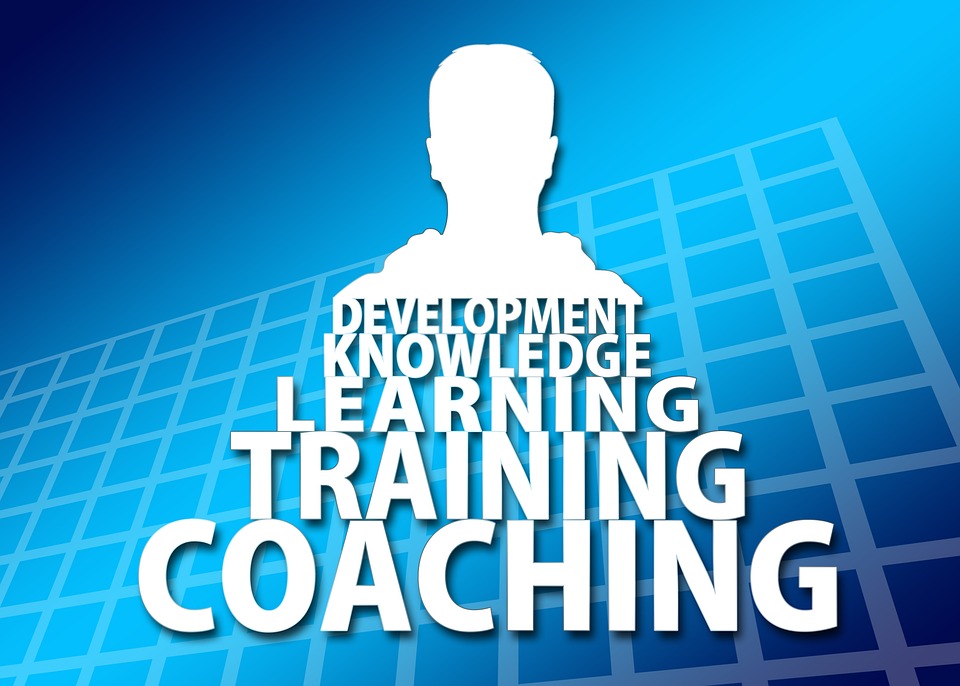
Photo by Tim Mossholder on Unsplash
Strengths and weaknesses
Self-coachingEvery now and then I think about getting a coach. If I want to improve beyond a certain point it's something I'll have to do, but I already spend more time on chess than my family likes and if I also started devoting more money to it it could cause some friction. Besides that I'm somewhat concerned that I'd end up hiring the wrong person for me and I'd take lessons for six months before I realized that it was a bad fit and I wasn't getting anything out of it. My guess is that hiring a coach will be something I'm considering until the day I die.
If I did hire a coach one of the first things I'd like her to help me figure out is what my strengths and weaknesses are. People are notoriously bad at judging themselves and that would be one of the major advantages of having a coach but since I don't have one I decided to think about it myself. I'm very critical of my chess game and my initial thought was that I'm weak at every aspect of the game and strong at none. Compared to good players that's technically correct, but I'm talking about relative strengths and weaknesses here. I'm sure that if I did have a coach there are aspects of my game where she would say, "don't worry about this, you do okay at that, but you really need to focus on this other thing." But what are "this," "that," and "the other thing?"
Often strengths and weaknesses can be different sides of the same coin. The first weakness I thought of was that I'm bad at tactics. My instincts aren't good and it takes me some time to figure out which pieces are threatened in any given position. Then once I do that my analysis skills aren't very good either and I have trouble calculating all the variations when tactics are possible. Because of this weakness, however, over the course of many games I've learned to take my time and be very careful, which I think is one of my strengths. I still make many blunders, but I don't often make mistakes because I just play a move without thinking about it. But then that leads me to another weakness, the fact that I often get into time trouble because of being so cautious. So there are actually three sides to this particular coin, and perhaps it's best not to think too carefully about the metaphor.
Similarly, in non-tactical positions I think one of my strengths is that I don't compromise the integrity of my overall position just so that I can play a move that looks aggressive. I don't play coffee-house moves that are aggressive looking but objectively unsound. This works in my favor usually, but not always, and because I tend to reject attacking moves that aren't part of an overall plan I often end up in stale, strategic positions without much attacking potential. A more swashbuckling player will win many games even where he makes unsound moves just because he forces his opponents to react to what he's doing, and they often--maybe even usually, at my rating level--react incorrectly. At the same time I often don't consider moves that are perfectly sound, but because they look aggressive and unusual I assume they must be bad. So my natural caution is both a strength and a weakness at the same time.
When it comes to the three basic phases of a chess game--opening, middlegame and endgame--while I don't think I'm particularly good at any of them if I had to choose the one I'm best at I'd reluctantly say the opening. I don't specifically study openings, and at my level that might actually help. My focus in most openings is just to develop my pieces to good squares and my natural caution usually prevents me from making ill-advised pawn grabs and that kind of thing. I don't know, it just seems like most of the time after a dozen moves or so I usually have a slight advantage as White and am often equal as Black.
I'd prefer it if my best phase was the middlegame as this is when most games get decided. You can usually recover from a bad opening but if you're bad in the middlegame you can't. Blunders in the endgame are the most decisive of all, since a major mistake usually decides the game immediately, but a lot of games never make it to the endgame because one of the players already lost in the middlegame. I don't know if I'm worse at the middlegame or endgame; at one time I thought I was relatively good at endgames but after dropping a number of points and half-points because of endgame errors I no longer think so.
I can think of a few weaknesses in my game that are quite specific. Without going too heavily into them I'll just list them quickly:
1. I will have a winning endgame that I end up drawing because I am afraid to allow my opponent a passed pawn, which I would have to do in order to win. I prefer a situation where my opponent has zero chances to win (who wouldn't?) and I end up agreeing to a draw instead when I should have won.
2. When I have an advanced passed pawn in the middlegame I try to push it too early, advance it beyond its protection and end up losing it when the opponent brings his king over before I can promote.
3. In tactical positions I have a blind spot for the ability of either player to block an open file by posting a minor piece on the file on a square where it's supported by a pawn. I particularly remember one game where I sacrificed a bishop (and I never sacrifice!) for what I was certain was a winning attack, until my opponent simply blocked the attacking file. That particular game was the worst example, but I've made the same basic mistake a number of times. I recently had a game where I could have stopped my opponent's attack the same way but didn't see it, allowed the attack, and lost.
There are probably many other weaknesses that a good coach would diagnose. The most insidious weaknesses are the ones you don't even know exist, so you do nothing to eliminate them.
As far as other strengths, I can't really think of anything with regard to particular strategies or tactics or things like that, but in terms of process I think I do several things pretty well. I hardly ever go a day without doing tactics exercises and some other form of chess activity, whether that's playing, analyzing, or something else like watching videos or writing this blog. When I think my position is worse I do a good job looking hard for counterplay or a swindle, and if I'm losing I keep doing my best to find the best moves until a loss is inevitable. I'm willing to take many losses so that I can play against strong opponents, which up to a point is a good thing.
Improvement in chess is mostly about trying to improve weaknesses since chess is mostly a game of mistakes. You don't have to be brilliant to win, you just have to avoid bad moves and let your opponent make the mistakes. Therefore figuring out your weaknesses is a lot more important than figuring out your strengths. Getting better at things you already do well won't improve your results much because your weaknesses are what kill you. Having a coach is probably the quickest way to identify them, and especially to get some suggestions on how to improve them. For most people having a coach is too big an investment of time and money, so the next best thing is having a friend who also plays chess and is familiar with your games tell you what he thinks. These days when everybody plays almost entirely on the internet even that may not be possible, in which case you have to do it yourself. It's not easy, but if you want to get better it has to be done.
You may also like
 FM CheckRaiseMate
FM CheckRaiseMateStop Cheating on Your Training
Common habits that drain the value from your study time and how to avoid them NM PerpetualChess
NM PerpetualChessGM Michael Adams and Philip Hurtado on How to "Think Like a Super GM"
An Excellent new chess book puts a 21st century spin on the research of Adriaan de Groot TomEaton
TomEatonGrinding away on Chessable
One tool using another TomEaton
TomEatonSlower than a speeding bullet
I knew I was bad. I just didn't know how bad. FM CheckRaiseMate
FM CheckRaiseMatePuzzles vs. Games
These positions are easy puzzles but almost no one got them right in a real game MatthewKCanada
MatthewKCanada